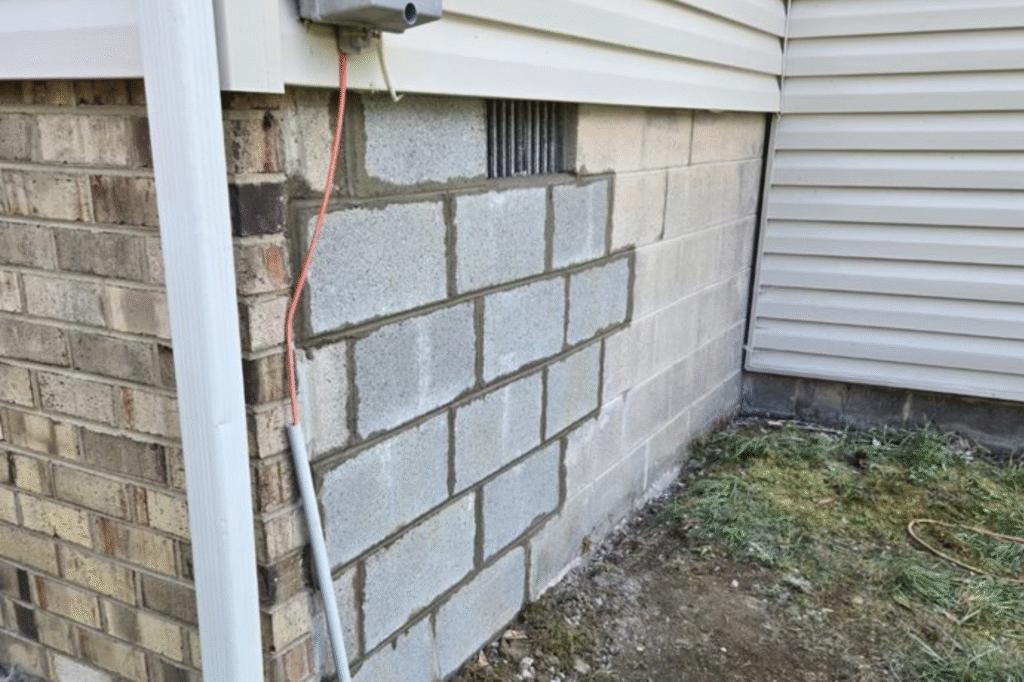Foundation cracks are more than just minor blemishes on your walls. They are often the first visible sign of deeper structural issues developing below the surface. At Tiger C Construction, we help homeowners in Richmond and surrounding areas understand not only what causes these cracks but also how to fix and prevent them. With the right knowledge and timely action, you can preserve the strength and value of your property.
Whether the problem is due to poor drainage, fluctuating temperatures, or shifting soil, identifying the cause is key. Our team specializes in foundation repair Richmond homeowners can trust, offering tailored solutions that keep your structure stable and secure.
Key Takeaways
- Foundation cracks often result from water damage, shifting soil, temperature changes, vegetation interference, and construction flaws.
- Soil conditions, especially clay and sandy soils can increase cracking risks if not properly managed.
Weather patterns, including frost, rainfall, and drought,t play a major role in foundation health. - Repair options include sealant injections, underpinning, and foundation stabilization systems.
- Preventative steps like drainage systems and proper grading help keep water away from the foundation.n
Understanding Foundation Cracks
At first glance, a hairline crack in the wall might seem like a small issue. But in many cases, it signals a more significant problem. Cracks in your foundation can lead to moisture intrusion, weakened support, and long-term structural concerns. These are not just cosmetic flaws. They are warning signs that should be addressed early.
Foundations are constantly under pressure from the soil beneath and the weather above. Even small movements can result in cracks that widen over time. That’s why catching the problem early is important. When you understand what you’re looking at, you can decide whether it’s time to call in a Richmond foundation repair professional.
Common Causes of Cracks
Cracks in your foundation can form for a number of reasons, and they often point to more than one contributing factor. Here are the most common causes:
Water intrusion is a major one. If water is allowed to collect around your home, it can push against the walls of your foundation. This hydrostatic pressure eventually forces cracks to appear. Poor gutter systems and drainage are usually to blame.
Soil movement caused by temperature shifts is another frequent issue. During colder months, soil contracts, and in warmer months, it expands. That constant motion puts stress on the foundation, especially in areas where frost is common.
Tree roots and dense vegetation close to the home can draw moisture from the soil and cause it to shrink. Over time, this shrinkage creates gaps under the foundation that can cause it to settle unevenly.
Sometimes, the issue goes back to construction errors. A foundation built with shallow footings or weak materials is far more likely to develop cracks, particularly as the home ages and settles naturally.
When any of these signs show up, calling a trusted foundation repair services Richmond team can make all the difference.
The Impact of Soil Conditions
Not all soil is created equal. The type of soil your home sits on plays a crucial role in how stable your foundation is over time.
Clay soil is very reactive to moisture. It swells when wet and shrinks when dry, which leads to a constant push and pull under your home. This movement is one of the most common causes of cracking in Richmond.
Sandy soil doesn’t hold moisture as well, but that means it can shift more easily. When this happens under a foundation, it often causes parts of the structure to settle faster than others.
Another concern is improper compaction during construction. If the ground wasn’t compacted thoroughly before the foundation was poured, the soil may continue to settle after the home is built, causing cracks to appear suddenly and without warning.
Erosion and organic content in the soil also play a role. Heavy rains can wash away fine particles, creating voids beneath the slab. Similarly, soil rich in organic material tends to be more compressible, which leads to settlement issues.
When we perform foundation repair in Richmond, we always start by carefully inspecting the soil. Addressing what lies beneath is often the first step in a permanent solution.

How Weather Influences Cracking
Weather patterns in Richmond can have a big impact on your foundation. Each season brings its own set of risks.
Freeze-and-thaw cycles are especially problematic. In winter, water in the ground freezes and expands, lifting the soil and creating upward pressure. When it thaws, the soil contracts and settles. Over time, this up-and-down motion stresses the concrete and causes it to crack.
Heavy rainfall brings its own set of challenges. If your home doesn’t have a well-designed drainage system, that water has nowhere to go but down—right alongside your foundation. Saturated soil creates pressure and softens support around the perimeter.
On the flip side, droughts can be just as damaging. Dry soil pulls away from the foundation, leaving voids that allow for settling and shifting. Add high winds and erosion, and over time, the land around your home can change significantly.
Understanding how the local climate affects your foundation is an important part of long-term care. Our Richmond foundation repair services are tailored to the weather conditions that homes here regularly face.
Repairing and Preventing Cracks
When it comes to keeping your foundation intact, there are several proven techniques we recommend:
Regular inspections help catch problems early. Look for cracks in basement walls, uneven floors, or sticking doors and windows. These are often signs of movement below the surface.
Crack injection is a fast and effective option for small cracks. We use specialized sealants, such as epoxy or polyurethane, to fill the cracks and prevent moisture intrusion.
When the damage is more extensive, underpinning is often the answer. This technique involves strengthening the foundation from below using additional support elements.
We also offer foundation stabilization, which includes push piers and slab jacking. These methods lift and secure a sinking foundation to restore it to its original level.
Prevention is just as important as repair. Creating proper drainage around your home is essential. This includes land grading, maintaining gutters, and installing systems like French drains to move water away from your foundation.
Whether you’re looking to fix a problem or prevent one, our foundation repair Richmond services are designed to give you lasting peace of mind.
Professional Solutions for Foundation Issues
Some foundation problems require more than just a quick patch. When you’re dealing with widespread cracking, shifting walls, or uneven floors, it’s time to bring in professionals who understand what to do.
Our team uses advanced solutions like crack injection, underpinning, and foundation stabilization to get your home back on solid ground. Every property is different, so we take the time to assess your specific conditions and recommend the right approach.
In addition, we address drainage and waterproofing to reduce future risk. Whether it’s a sump pump or a properly graded yard, we’ll help you keep moisture under control.
With a reputation for reliability and attention to detail, Tiger C Construction is a trusted name for Richmond foundation repair. We take pride in delivering quality work that lasts.
In Summary
Foundation cracks should never be ignored. While they may start small, they can signal bigger issues just beneath the surface. Soil movement, weather, and construction flaws all contribute to the problem, but the good news is that every issue has a solution.
With the right plan, a solid inspection, and a team, your home’s foundation can be repaired and protected for years to come.
If you need trusted foundation repair services in Richmond, Tiger C Construction is here to help. Let’s make sure your foundation is as strong and stable as the rest of your home.
